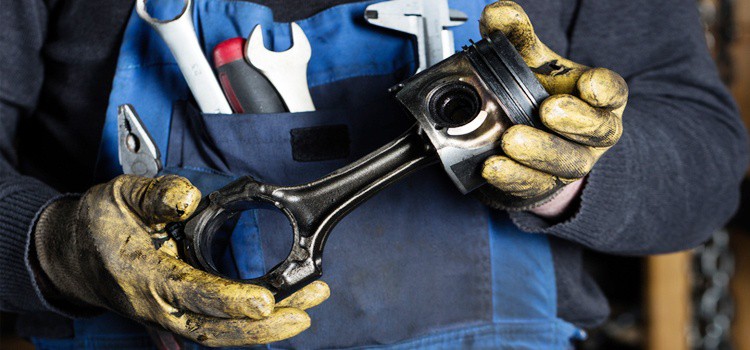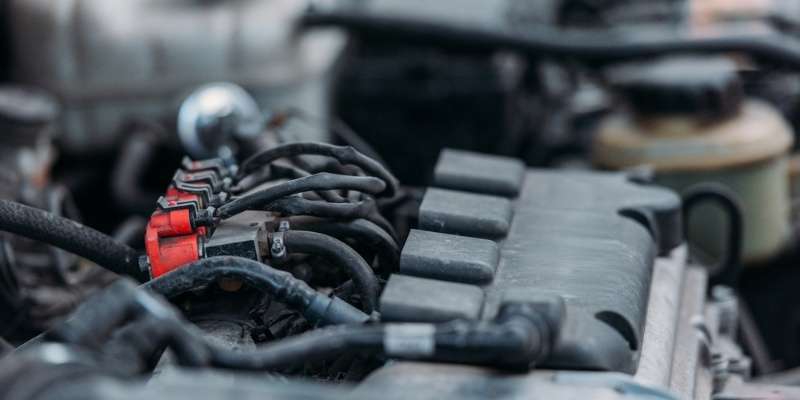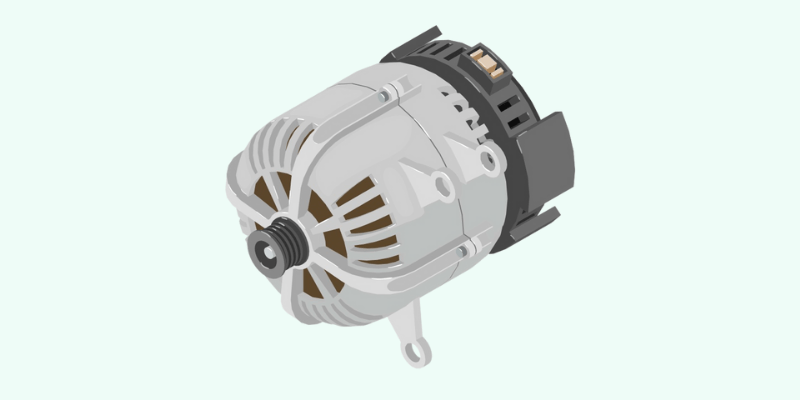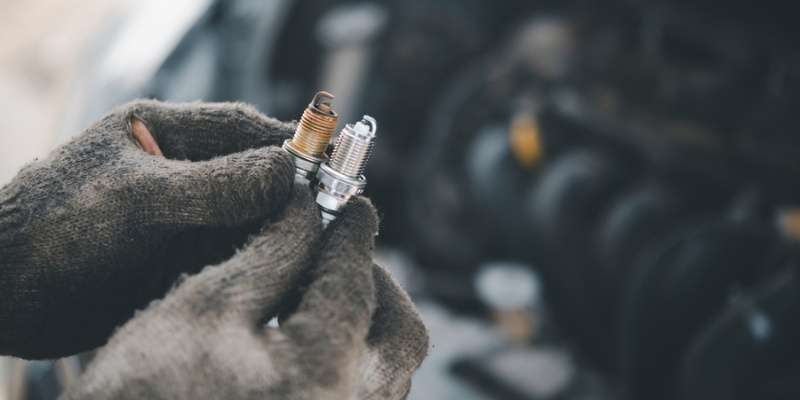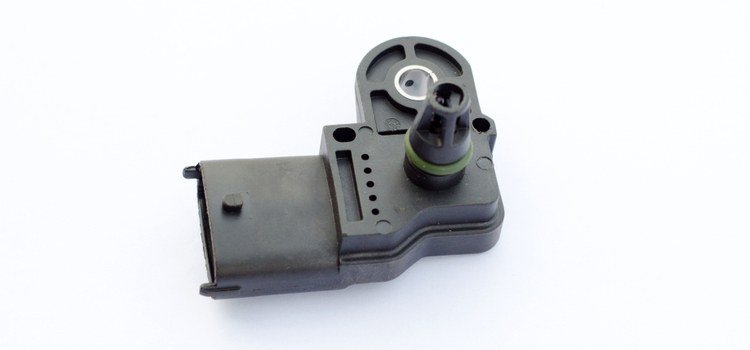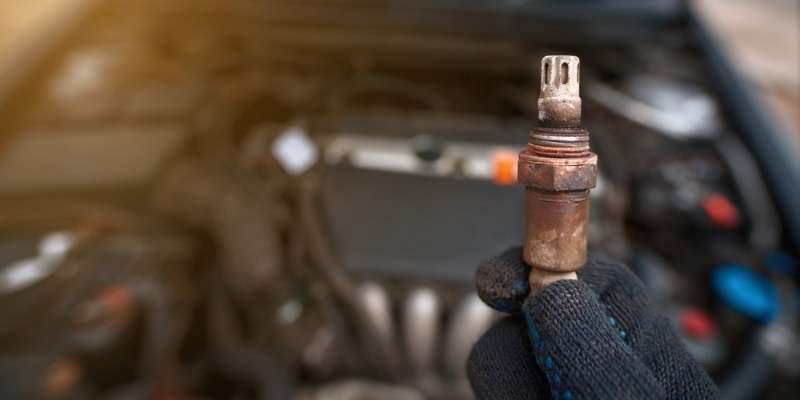Here is a diagram that summarizes what happens when you put diesel in a gasoline car:

- Diesel is put into a gasoline car.
- The diesel clogs the fuel injectors, filters, and lines.
- The engine runs on the remaining gasoline.
- If the mistake is noticed, the car should be towed to a service station.
- At the service station, they pump out the diesel, flush the fuel system, and replace the fuel filters.
- If the car is driven, it will stop after a few miles due to the inability of the gasoline engine to combust diesel fuel.
- This results in severe engine damage, which can be costly to repair.
Understanding the Differences Between Diesel and Gasoline
To understand the differences between diesel and gasoline, let’s explore the characteristics of diesel fuel and gasoline fuel. This will provide you with a comprehensive understanding of the unique properties and qualities that make these two fuels distinct from one another.
Characteristics of Diesel fuel
Diesel fuel has properties that make it distinct from regular gasoline. Knowing these qualities helps us understand why diesel is great for certain uses. Let us explore the key characteristics of diesel fuel:
- Its energy density is higher than gasoline.
- It uses compression ignition for combustion.
- It is more fuel-efficient than gasoline engines.
- It produces more torque for heavy-duty tasks.
Plus, diesel fuel has fewer volatile compounds, making it safer for transportation and storage. Its viscosity also protects engine components from wear and tear.
A great example of diesel fuel’s advantages is a long-haul truck driver. His diesel-powered truck was able to handle different terrains and weather conditions. The high torque allowed him to climb steep inclines easily, while the great fuel economy saved him money on refueling stops.
All in all, diesel fuel has unique characteristics that make it ideal for certain uses. Its higher energy density, efficient combustion, greater torque output, and safety features make it popular among heavy-duty vehicle owners and long-distance travelers. So, next time you need to make a long trip, forget about gasoline and go with the diesel!
Characteristics of Gasoline fuel
Gasoline, a popular fuel for cars, has special traits that set it apart from other fuels. Knowing its features is vital for anyone working with it. Let’s look at the key characteristics of gasoline and some tips on how to use it optimally.
Here’s a table with the details:
| Characteristic | Description |
|---|---|
| Octane rating | Shows fuel’s ability to resist knocking or pinging. |
| Vapor pressure | Indicates fuel’s volatility and initial boiling point. |
| Energy content | Shows heat energy produced by burning an amount of gasoline. |
| Evaporation rate | How quickly the fuel evaporates under normal conditions. |
| Flash point | Lowest temperature at which vapors ignite when exposed to an open flame or spark. |
Gasoline is highly flammable and can produce dangerous emissions like carbon monoxide and nitrogen oxides when burned. This emphasizes the need for proper engine maintenance and regular emission checks to minimize environmental harm.
To make the most of your vehicle when using gasoline as fuel, consider these tips:
- Regular Engine Maintenance: Oil changes, air filter replacements, and timely inspections can improve engine performance and fuel efficiency.
- Fuel Quality: Choose reliable gas stations that follow strict quality control to make sure the gasoline is pure and uncontaminated.
- Driving Habits: Use efficient driving like avoiding sudden accelerations or decelerations and keeping a steady speed to conserve fuel.
- Proper Tire Inflation: Keeping the right tire pressure helps handling and safety, and saves fuel.
By following these suggestions, you can make the most of gasoline as fuel. Being aware of its characteristics and taking steps to optimize its use will result in a more eco-friendly driving experience. Remember – putting diesel in a gasoline car is like trying to have a romantic dinner with pineapple on pizza – it’s a disaster!
Effects of Putting Diesel in a Gasoline Car
To understand the effects of putting diesel in a gasoline car, delve into the section on engine damage and performance issues. Explore the potential consequences and complications that arise from this mismatched fuel combination. Discover how such a mistake can lead to costly repairs and significant impact on the performance of your vehicle.
Engine Damage
Putting diesel in a gasoline car can be disastrous! The properties of diesel fuel such as its higher viscosity and lower volatility, are incompatible with a gasoline engine. This causes improper combustion and a decrease in performance. It also clogs up the fuel injectors and increases friction between engine components.
An unfortunate example of this happened when a driver unknowingly filled his car with diesel at a gas station. After driving for miles, he experienced serious engine damage. The costly repairs served as a reminder to always use the right type of fuel for vehicles.
Lack of Ignition
Putting diesel in a gasoline car is not recommended. The AAA conducted a study showing it can cause costly damage. Spark plugs won’t generate enough heat to ignite the fuel. So, the engine may struggle to start, or not at all.
Misfires and engine malfunction could occur. Damage to pistons, valves, and cylinder walls could happen too. Incomplete combustion of diesel fuel could lead to black smoke from the tailpipe. This would increase emissions and environmental pollution.
It’s like Mortal Kombat for your car’s fuel system! And fatalities are highly likely.
Fuel System Damage
Putting diesel in a gasoline car can lead to severe complications and costly repairs. The fuel injectors can get clogged, the fuel pump fail, the filter blocked, the spark plugs covered, and the oxygen sensors malfunction. Plus, the combustion process can be disrupted, reducing power and efficiency.
To avoid this, drain all diesel from the tank and replace with gasoline. Then, get it inspected by a pro. Change the oil and filter too, as these may have been contaminated.
Act fast to stop further damage and to keep the car reliable. Don’t let Murphy’s Law win – avert disaster before it comes!
Performance Issues
Using diesel in a gasoline car can be a recipe for disaster. It won’t combust properly, resulting in less power. Plus, the different fuel properties can lead to poor lubrication, causing damage. The higher energy density can also overload the engine, resulting in overheating.
On top of that, it affects emissions control systems. The EGR system won’t work efficiently, leading to increased NOx emissions. This could cause compliance issues and environmental concerns.
Sadly, some folks accidentally put diesel in their cars. One friend unknowingly filled his new sports car with diesel. He didn’t realize until he noticed sluggish acceleration and noisy engine, and had to pay for costly repairs.
Decreased Power and Acceleration
John learned the hard way that diesel fuel is not suitable for gasoline cars. It can lead to power and acceleration loss, as well as engine damage. This is due to differences in compression ratios, lubricating qualities, and chemical properties. Not to mention, the resulting emissions can cause regulatory issues. Using the wrong fuel can be an expensive mistake, as John found out. His car had a significant loss of power and difficulty driving uphill, all because he accidentally filled his gasoline car with diesel fuel on a road trip. If you ever experience rough running and misfires, be thankful it’s not your love life!
Rough Running and Misfires
Rough Running and Misfires can occur when diesel is mistakenly put into a gasoline car. This can lead to engine issues, decreased power, and unstable performance.
The fuel injectors may become clogged or damaged due to diesel’s different properties. The combustion process is also affected, since diesel has a higher ignition temperature than gasoline. Plus, it lacks the necessary lubrication properties for gasoline engines, resulting in increased wear and tear.
It’s important to note that putting diesel in a gasoline car can have serious consequences. I once heard a story about someone who filled their car with diesel. They had severe stalling and loss of power while on the highway. It took hours to get their car towed and repaired. Costing them both time and money, this serves as a reminder of the negative effects of such a mistake. A quick prayer to the car gods won’t undo the damage, but it might make you feel better about your choices.
Immediate Actions to Take
To quickly address the issue of putting diesel in a gasoline car, take immediate action. Avoid starting the engine and instead have the vehicle towed for professional assistance. This ensures the problem is dealt with properly and prevents any further damage or complications.
Do Not Start the Engine
Do not start the engine in this situation! It could cause more harm or make the current problem worse. So, take quick action to stay safe.
- Locate the emergency brake and engage it right away. This will keep the car from moving.
- Take out the key or press the off button to switch off the ignition. That way, there won’t be accidental starts or extra strain on the engine.
- Get help from a mechanic or roadside assistance service. They have the skills and tools to solve the problem safely and quickly.
Stay calm and don’t try to fix it yourself. Professional help is best. Plus, regular maintenance, servicing, and being aware of warning signs can help avoid such emergencies. Follow the manufacturer’s instructions and guidelines to keep your car engine running longer.
So, by not starting your engine, you’re reducing the risks and letting the experts handle it. Be smart, be safe, and above all, be cautious. Who needs a tow truck when you can just tie a balloon to your car and call it a day?
Have the Vehicle Towed
Getting your vehicle towed can be essential. Whether from a breakdown or an accident, it’s usually the safest and most efficient way. Here are the steps to take when having your vehicle towed:
- Survey the scene: Check the circumstances. Is your car in danger or blocking traffic? If so, call a tow truck quickly.
- Select a tow service: Look for one with good reviews and reliable service. Ask friends and family for recommendations. Trust the towing company you pick – they’re in charge of your car!
- Gather the info: When contacting the towing service, give them details about your location, vehicle type, and any special towing needs. This helps the towing company bring the right equipment.
- Prepare: Put warning signs or cones around your car. Turn on your hazards in the dark. Take any valuables out before it’s towed.
Remember, if you ever need a tow, you won’t be alone. Many people have turned to towing services for help in tricky situations. Even diesel fuel contamination is no match for the quick and reliable towing services out there – it’s like giving your car a spa day!
Repairing a Gasoline Car after Diesel Contamination
To repair a gasoline car after diesel contamination, implement the following solutions: Fuel System Flush, Engine Inspection, and Cleaning. These sub-sections will guide you through the necessary steps to rectify the issue caused by mistakenly putting diesel fuel into a gasoline engine.
Fuel System Flush
A Fuel System Flush is essential for resolving diesel contamination in a gasoline car. To achieve this, the fuel tank needs to be drained and cleaned, then the fuel pump, filter, and injectors must be replaced. If necessary, injectors can be cleaned instead of replaced.
One of our friends experienced this issue when they mistakenly filled their gasoline car with diesel. However, after a Fuel System Flush was performed, the car was running smoothly and had no residual issues. It was truly an amazing transformation!
Engine Inspection and Cleaning
It’s super important to inspect and clean your engine after diesel contamination. Follow these 4 steps to get your car back on track:
- What’s the Damage? Check for smoke, noises, and vibrations. Inspect fuel filter, injectors, and spark plugs for any blockages.
- Flush It Out: Empty fuel tank and fill it with fresh gasoline. Add a suitable fuel system cleaner and run the engine for a few minutes.
- Clean Components: Remove and clean affected parts like fuel injectors, filters, and pumps. Use an appropriate cleaning solution to remove diesel residue.
- Test and Monitor: Reassemble parts and start the engine. Look out for any irregularities in acceleration, idling, and emissions. Check your vehicle regularly to make sure it’s running smoothly.
Don’t wait too long to take care of your car after diesel contamination! Do it now to protect your car and prevent any further difficulties. Safeguard your investment and have fun on the roads by following these steps!
Preventing Diesel Contamination in a Gasoline Car
To prevent diesel contamination in a gasoline car, arm yourself with knowledge on fuel labels and pumps, and make a habit of double-checking before fueling. Understanding fuel labels and pumps ensures you choose the right type of fuel, while double-checking before fueling helps eliminate the risk of mistakenly using diesel in a gasoline car.
Understanding Fuel Labels and Pumps
The table below lists key information on fuel labels and pumps:
| Label | Meaning | Description |
|---|---|---|
| Unleaded | Suitable for gasoline engines | No lead additives |
| Premium | Higher octane rating | Better performance for some vehicles |
| Diesel | For diesel-powered cars | Higher energy density than gasoline |
It’s vital to know that using the wrong fuel can damage your engine. Gasoline engines can’t take diesel fuel – this could lead to expensive repairs and reduced performance. So, double-check the label before refueling.
And, be aware of any extra labeling or warnings on the pump. E85 (flex fuel) contains more ethanol – it’s formulated for certain vehicles only, so use it if it’s compatible with your car.
My friend recently made a mistake at the gas station. She pumped diesel into her new gasoline car, due to unfamiliar labeling. The car stalled a few miles down the road. She had to get her engine flushed and repaired – an expensive lesson! So, be careful and double-check before filling up, to avoid costly errors.
Double-checking Before Fueling
Protecting your gasoline car from diesel contamination can seem tedious. But it’s essential! Follow these three steps to ensure a worry-free refueling experience:
- Check the fuel type. Look for labels or stickers on both the pump and your vehicle indicating “gasoline” or “petrol.”
- Inspect the pump. Look for any signs of diesel residue or discoloration. If anything looks suspicious, choose another pump or alert a staff member.
- Stay focused. Avoid distractions and remain aware throughout the process.
And one more pro tip: If you ever suspect diesel has been dispensed into your car, don’t start the engine. Seek professional help at once.
By following these guidelines, you can keep your gasoline car safe and ensure its performance and longevity.
Conclusion
To ensure a smooth and problem-free experience with your car, it is essential to understand the importance of proper fueling. In the conclusion of this article on “what happens if you put diesel in a gasoline car,” we will discuss the potential consequences of mixing diesel and gasoline. Stay tuned to learn about the potential risks and damages that can occur with this fueling mistake.
Importance of Proper Fueling
Fueling is key for peak performance and efficiency. The right kind of fuel can make a big difference in how any system or car works. It gives energy, keeps moving parts lubricated, and cools things off – ensuring smooth operation and warding off potential damage.
Proper fueling is essential for maintaining the engine and other components. This helps the vehicle run at its best, avoiding breakdowns and costly repairs. Using the right type and quality of fuel prevents clogging of filters and injectors, as well as reduces carbon deposits that could slow down performance.
Plus, good fueling increases fuel economy. Using clean fuel according to manufacturers’ specs helps vehicles reach optimum mileage and reduce emissions. This is great for the environment, as it lessens pollution, plus it saves money on fuel costs for people and businesses.
In addition to boosting performance and efficiency, proper fueling also improves road safety. Incorrect octane ratings in fuel can cause knocking or pinging noises in the engine, which can cause gradual internal damage. Following fuel types based on octane requirements helps drivers avoid possible risks from bad combustion.
Pro Tip: Check your vehicle’s manual regularly for guidance on proper fuel specs. Following these recommendations protects your car’s performance and extends its life. Don’t mix diesel and gasoline – ‘cragasoline’ won’t transform your car, unfortunately.
Potential Consequences of Mixing Diesel and Gasoline
Mixing diesel and gasoline can be a risky business! It can cause severe damage to the engine, reduce performance, increase emissions of pollutants, and pose safety hazards. Plus, it can void your vehicle’s manufacturer warranty.
To avoid these dire consequences, here’s what you should do:
- Be certain to use the right fuel dispensers. Diesel pumps are marked with green handles or labels, and gasoline pumps – with black.
- Know which fuel type is recommended for your vehicle. Check the owner’s manual or contact the manufacturer.
- Maintain your vehicle’s fuel system. Change the fuel filters and monitor the fuel injectors for any signs of clogging or damage.
- If you mix diesel and gasoline, get help quickly. Contact a qualified mechanic to assess the situation and minimize any potential damage.
By following the right steps, you can save your vehicle and your safety from the negative effects of mixing diesel and gasoline. Be sure to use the correct fuel type at all times!
Frequently Asked Questions
Q: What happens if I accidentally put diesel in my gasoline car?
A: Putting diesel fuel in a gasoline car can cause serious damage to the engine and fuel system.
Q: Is it safe to drive my car if I accidentally put diesel in it?
A: No, do not attempt to drive your car if you have put diesel in it. It is important to have the vehicle towed to a mechanic to prevent further damage.
Q: How will I know if I’ve put diesel in my gas tank?
A: You may notice a strong odor and/or a change in the color of the fuel in your gas tank. Your car may also begin to smoke or have trouble starting.
Q: Can diesel be drained out of a gas tank?
A: Yes, a mechanic can drain the diesel from the gas tank and flush the fuel system with gasoline to prevent damage.
Q: How much will it cost to repair my car if I accidentally put diesel in it?
A: The cost of repairs will vary depending on the extent of the damage. It is important to have the vehicle inspected as soon as possible to prevent further damage.
 Skip to content
Skip to content
